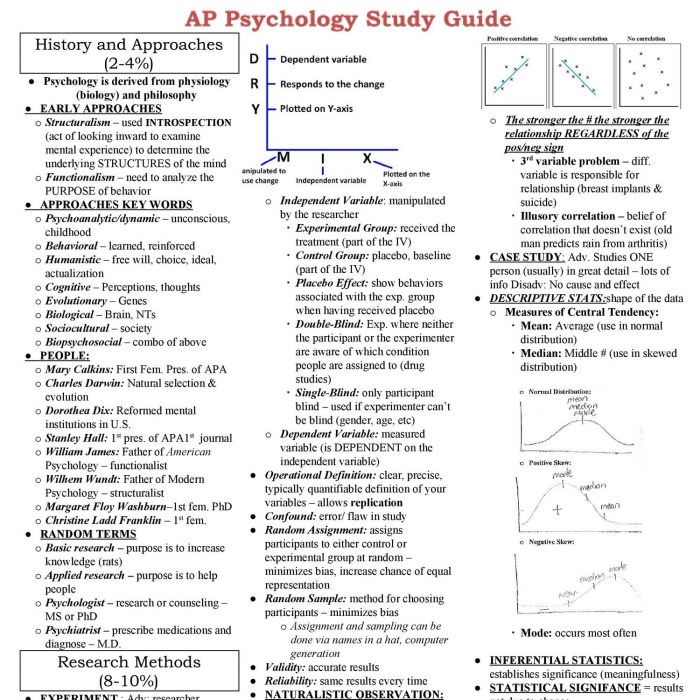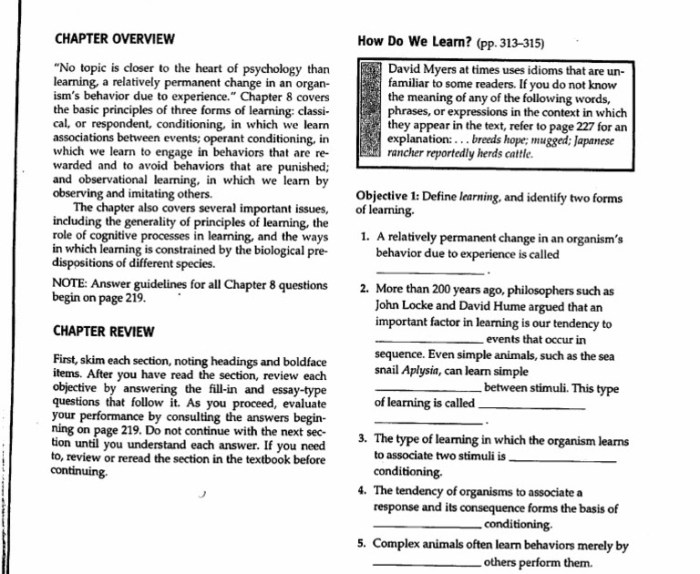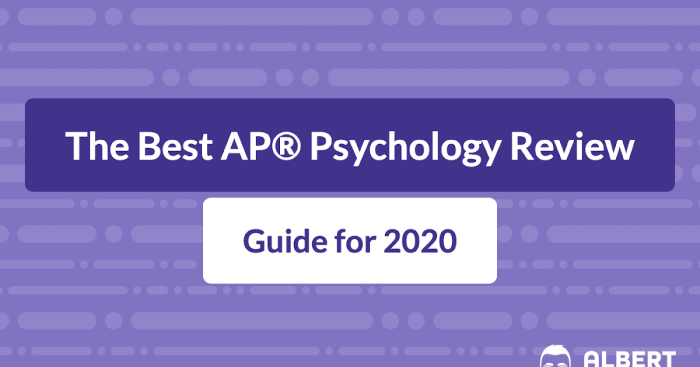Ap psychology midterm study guide – Prepare for success in your AP Psychology midterm with this comprehensive study guide. This guide covers all the key concepts, theories, and research methods you need to know for the exam. Whether you’re a struggling student looking to improve your grade or a top student aiming for a perfect score, this guide has everything you need to excel.
In this guide, we’ll delve into the fascinating world of psychology, exploring the biological bases of behavior, sensation and perception, states of consciousness, learning, motivation and emotion, development, personality, social psychology, and clinical psychology. With clear explanations, engaging examples, and practice questions, this guide will help you understand the complex world of the human mind and prepare you for success on your midterm exam.
Course Overview

The AP Psychology course introduces students to the scientific study of behavior and mental processes. The course is designed to provide students with a comprehensive overview of the field of psychology, including its history, major theories, and research methods. Students will also learn about the different subfields of psychology, such as clinical psychology, developmental psychology, and social psychology.
The course is divided into 10 units, which cover the following topics:
- Introduction to Psychology
- Research Methods
- Biological Bases of Behavior
- Sensation and Perception
- States of Consciousness
- Learning
- Motivation and Emotion
- Development
- Personality
- Social Psychology
The midterm exam will cover the first five units of the course.
Research Methods

Research methods are the tools that psychologists use to study behavior and mental processes. There are a variety of different research methods, each with its own strengths and weaknesses. The most common research methods include:
- Observational methods:Observational methods involve observing and recording behavior without intervening. This can be done in a natural setting, such as a classroom or a playground, or in a laboratory setting.
- Experimental methods:Experimental methods involve manipulating one or more independent variables to see how they affect a dependent variable. This allows researchers to determine cause-and-effect relationships.
- Correlational methods:Correlational methods involve measuring the relationship between two or more variables. This can help researchers identify patterns and relationships, but it does not allow them to determine cause-and-effect relationships.
Psychologists must carefully consider the strengths and weaknesses of each research method when choosing which method to use for a particular study.
In addition to choosing a research method, psychologists must also consider the ethical guidelines for conducting research. These guidelines are designed to protect the rights of research participants and to ensure that research is conducted in a responsible and ethical manner.
Biological Bases of Behavior: Ap Psychology Midterm Study Guide

The biological bases of behavior refer to the physical structures and processes that underlie behavior and mental processes. These structures and processes include the brain, the nervous system, and the endocrine system.
The brain is the control center of the body. It is responsible for processing information, controlling movement, and regulating emotions. The nervous system is a network of nerves that connect the brain to the rest of the body. The endocrine system is a network of glands that secrete hormones into the bloodstream.
Hormones are chemical messengers that regulate a variety of bodily functions, including growth, metabolism, and reproduction.
The biological bases of behavior are complex and not fully understood. However, research has shown that there is a strong link between the brain and behavior. For example, studies have shown that damage to certain areas of the brain can lead to changes in personality, memory, and other cognitive functions.
Detailed FAQs
What is the best way to use this study guide?
This study guide is designed to be a comprehensive resource for your AP Psychology midterm. Use it to review key concepts, practice answering questions, and identify areas where you need additional support. Start by reading through the entire guide to get a general overview of the material.
Then, focus on the sections that you find most challenging. Use the practice questions to test your understanding and identify areas where you need more practice.
How much time should I spend studying for the midterm?
The amount of time you should spend studying for the midterm will vary depending on your individual needs. However, it is generally recommended that you start studying at least two weeks before the exam. This will give you enough time to review all of the material and practice answering questions.
What are some tips for success on the midterm?
Here are a few tips for success on the AP Psychology midterm:
- Start studying early and review the material regularly.
- Use this study guide to focus your studying and identify areas where you need additional support.
- Practice answering questions using the practice questions provided in this guide.
- Get a good night’s sleep before the exam and eat a healthy breakfast on the day of the exam.